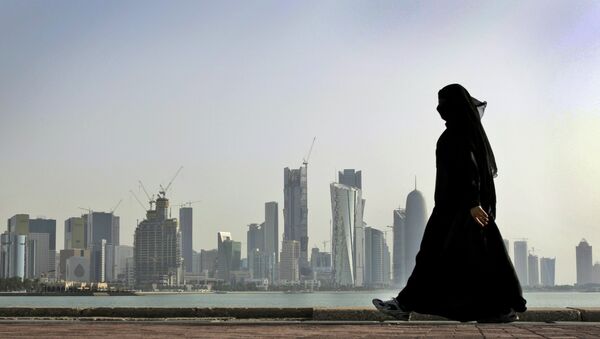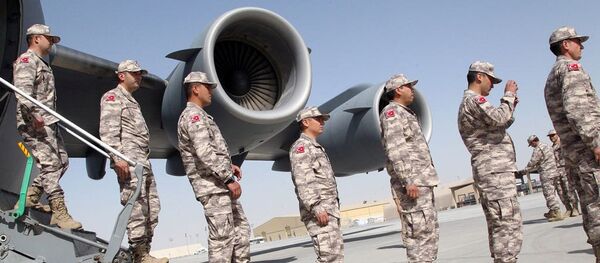"It seems to me that Qatar and Saudi Arabia need neither Russian nor even American intermediaries," he said when answered whether Russia could mediate the settlement of the Qatari crisis.
"What is mediation? [US President] Trump proposed to hold an Arab summit in Washington. I think this is a stupid idea which will be rejected by Doha and Riyadh because they want to save face," Naumkin said, expressing hope that Qatar and Saudi Arabia will reach a consensus on their own.
Naumkin recalled that the Arab countries have at least three venues for talks, including in the Gulf Cooperation Council, the Arab League and the United Nations.
What Qatar-Gulf crisis means for the region: Your questions answered https://t.co/FR5ksTpIAf pic.twitter.com/bxakA8kjn7
— Al Jazeera English (@AJEnglish) 24 июня 2017 г.
According to him, Russia is discussing the Qatari crisis both with Doha and representatives of the United Arab Emirates and Saudi Arabia.
"Although they (representatives of Qatar, Saudi Arabia and the United Arab Emirates) have repeatedly paid visits to Moscow, this cannot be called mediation on the part of Russia. Mediation means efforts to make them sit down at a negotiating table in Moscow, but I think that this is unlikely to happen right now," Naumkin said.
Saudi Arabia, the United Arab Emirates, Bahrain and Egypt broke off diplomatic relations with Qatar on June 5, accusing Doha of supporting terrorism and interfering in their internal affairs.
Top banks, agencies refuse to exchange riyals from #Qatari travelers abroad.https://t.co/tTTwJbU0zt#Qatar #QatarCrisis pic.twitter.com/b17tmQMSR9
— The Qatar Insider (@theqatarinsider) 30 июня 2017 г.
Later, the Maldives, Mauritius, and Mauritania also announced the severance of their diplomatic relations with Qatar. Jordan and Djibouti reduced the scale of their diplomatic missions in Qatar, while Senegal, Niger and Chad announced the withdrawal of there ambassadors.
Last week, Saudi Arabia, Bahrain, the United Arab Emirates and Egypt presented Qatar with a 13-point list of demands that it must fulfil in order to have the blockade lifted.
US: Gulf crisis chance to influence Saudi and Qatar https://t.co/r3bf8K74C5 pic.twitter.com/BOKolnBLJS
— Middle East Monitor (@MiddleEastMnt) 30 июня 2017 г.
The ultimatum demands that Qatar, among other things, cut its ties with Iran, close the Turkish military base on its soil and shut down Al Jazeera and its affiliates.
Other demands call on Doha to publically denounce relations with Islamist groups, end its suspected financing of terrorism and hand over persons designated as terrorists by Saudi Arabia, the United Arab Emirates, Bahrain and Egypt.
As the crisis in the Gulf heats up, the Saudis and Emiratis' impossible demands ensure that things will get ugly. https://t.co/Fov4slOSO1
— Foreign Policy (@ForeignPolicy) 29 июня 2017 г.
Moreover, financial compensation is demanded of Qatar, although the sum was not reported.
Meanwhile, the Qatari riyal has fallen to its lowest trading value against the dollar in 12 years as a result of the boycott of Qatar by a group of Arab countries.
While the Qatari riyal has been officially pegged at $3.64 to the dollar since 2005, offers for the currency have fallen below the fixed rate amid a fall in demand. According to Bloomberg data, the spot exchange rate for the riyal dipped to 3.79 on June 26, before recovering to 3.72 on Friday.




